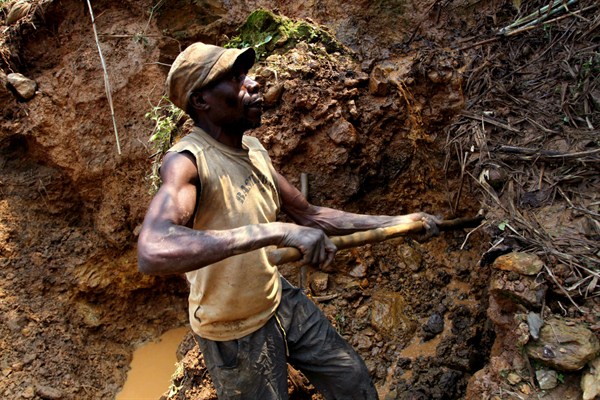After more than five years of negotiations, Joseph Kabila, president of the Democratic Republic of Congo, signed into law a new mining code earlier this month. The code faced strong opposition from mining companies, which now face higher royalties and taxes. The government has said it may be willing to negotiate terms on a case-by-case basis. Congo has extensive mineral wealth and is the top source of cobalt globally and the top source of copper in Africa. In an email interview, Thomas Lassourd, a senior economic analyst at the Natural Resource Governance Institute, or NRGI, discusses why the government decided to push forward with the new code, how it affects transparency and accountability, and the obstacles to its implementation.
WPR: What was the Congolese government’s motivation for adopting the new mining code, and what are its strengths and weaknesses?
Thomas Lassourd: In 2012, the government started working on a revision of its 2002 mining code, which was passed during a period of civil war in Congo. There were several legitimate reasons to review the previous law, including the need for it to conform to the 2006 constitution, the lack of strong provisions on environmental protection and local development, and a desire to readjust the relatively generous incentives for investors.

